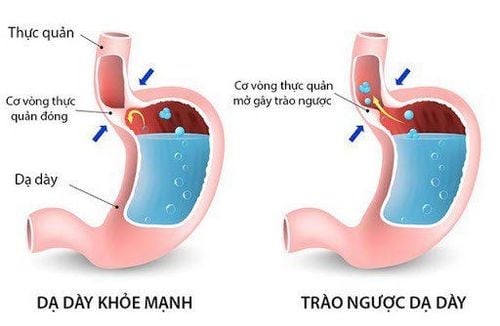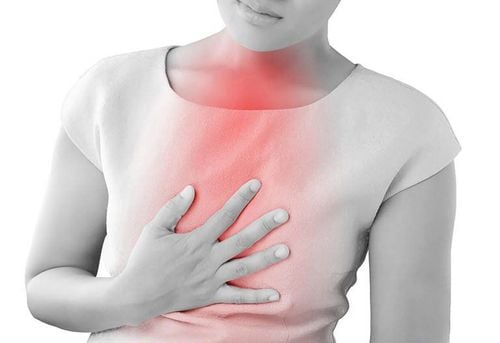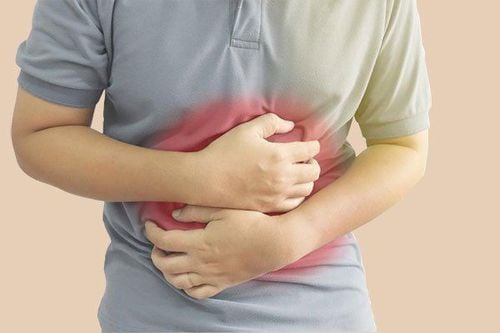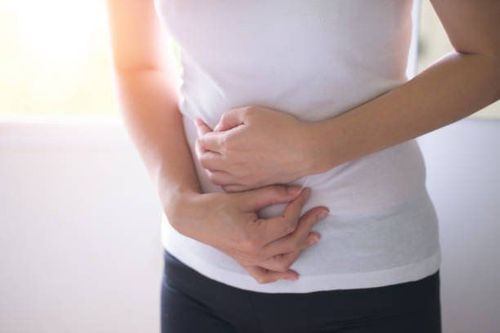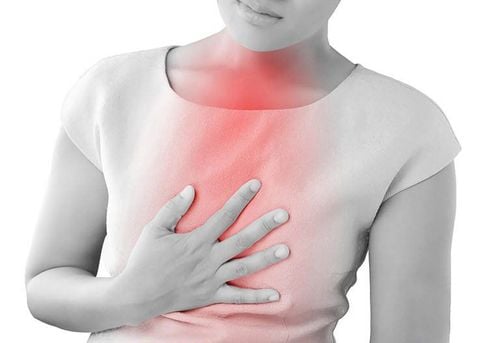This is an automatically translated article.
This article is expertly consulted by MSc Vu Tan Phuc - Gastroenterologist - Department of Medical Examination & Internal Medicine - Vinmec Phu Quoc International General Hospital.Antral congestive heart failure is divided into 3 grades: mild, moderate and severe. At moderate level, patients often have symptoms such as nausea and vomiting, belching, heartburn, burning pain in the epigastrium, indigestion, bloating, body weakness,...
1. Learn about gastric antrum and gastritis
1.1 Where is the gastric antrum, what function does it have? Anatomically, the stomach is divided into several parts including the cardia, the aneurysm, the body, the antrum, and the pyloric cave.The antrum is located at the position from the small curvature of the stomach to the pyloric orifice, with a size of 3 - 5cm. The stomach is responsible for helping to cut food into small pieces, making it easier for the body to metabolize and absorb nutrients. Food is almost always stored in the antrum, so this area is very susceptible to infection.
1.2 What is moderate antral gastritis? Antral gastritis is a condition in which the lining of the stomach antrum becomes inflamed, causing the blood vessels in that area to dilate due to blood stasis and become redder than other areas.
When congested ulcers are increasingly developing without timely diagnosis and treatment, they will lead to bleeding, potentially causing antral perforation, bleeding, even stomach cancer, causing disease. death factor.
Gastric antral congestion is divided into mild, moderate and severe degrees. Antral congestive heart failure is a common type of lesion in the stomach with signs of an antral area with erythema mottled spots.
2. Symptoms of moderate antral congestive heart failure
At mild level, patients with antral congestive gastritis have only prominent symptom, epigastric pain, rarely other clinical symptoms. However, when the disease turns to a moderate stage, the symptoms of the disease begin to appear clearly such as:Nausea, vomiting, flatulence, abdominal distension: The stomach antrum is inflamed, the capillaries in the stomach bulge. Large enough to hinder the digestion of food. Food that is not broken down immediately will be stagnant, along with excess acid in the stomach causing nausea or gastroesophageal reflux; Heartburn, heartburn: Patients often have belching, heartburn, occurring intermittently or continuously. This symptom causes pain in the chest and throat, fatigue in the body; Burning pain in the epigastrium: The patient may have intermittent pain, mild pain or persistent dull pain, the pain increases at night, after eating or when the weather changes. In some cases, severe cramping pain can spread to the chest, shoulders and back; Pale skin: When food is not digested normally, the stomach will not be able to absorb all the nutrients from the food, causing the body to lack nutrients, and the skin will be paler. At the same time, gastritis also makes patients prone to rapid weight loss. During endoscopy, observing the gastric antrum mucosa, the doctor will see the appearance of red spots on the gastric mucosa. This is a characteristic subclinical symptom that helps distinguish moderate gastritis from other gastric diseases.
With severe gastritis, the symptoms are similar to those of moderate disease but are more severe.
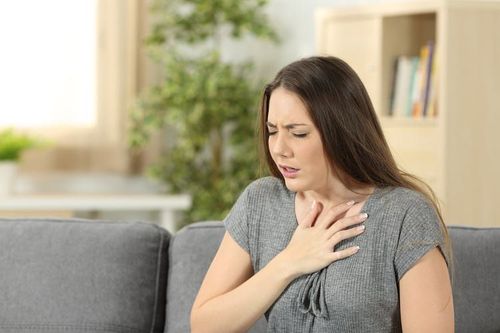
3. Causes of gastric antrum congestive inflammation
Helicobacter pylori infection ; Frequent psychological stress, unstable mental state; Improper use of anti-inflammatory and pain relievers; Using a lot of alcohol, beer, tobacco, coffee, ... erodes the protective mucus layer of the stomach wall and increases gastric juice, causing inflammation of the gastric mucosa; Having an unscientific diet: Regularly skipping meals, overeating, not concentrating when eating,... creating pressure on the stomach to secrete more acid to digest food; Candida infection.4. Complications of moderate gastritis
In the early stages of moderate gastritis, the treatment is not too difficult if the patient follows the doctor's instructions. However, in the long-term, if not treated, the antrum may bleed depending on the severity such as:Light bleeding - normal: The patient has abdominal pain, black stools like coffee grounds. coffee or ripe plum color, stools with an unpleasant odor; Severe bleeding: Severe abdominal pain, dizziness, sweating, pale skin, low blood pressure, possible fainting or shock, vomiting bright red or clotted blood, and passing fresh blood. The disease can lead to many serious complications such as gastric perforation, stomach cancer.

5. Treatment of moderate gastric antrum congestive inflammation
5.1 Use of Western Medicine Patients should be tested to determine if they are infected with Helicobacter Pylori. If the disease is caused by Helicobacter Pylori bacteria, it will be treated with antibiotics, combined with drugs to neutralize acid in the gastric juice, drugs to tighten the stomach lining and drugs to nourish the stomach lining; For the case of congestive antral gastritis caused by the wrong use of anti-inflammatory drugs, pain relievers, the drug should be stopped or changed to other more suitable drugs; In case the stomach antrum is congestive due to eating habits or psychological stress, it is necessary to change the diet and activities to support the treatment of the disease and prevent the disease from recurring. Patients need to strictly follow the treatment regimen of the doctor and must not stop treatment midway, change drugs without the doctor's permission to avoid the situation that the disease cannot be completely cured.5.2 Use of turmeric folk remedies: Mix turmeric powder with 3 tablespoons of honey in the appropriate amount, use 3 times a day before meals. Maintaining using this remedy for about 15 days will see a marked improvement in the symptoms of the disease; Ginger tea: Put a slice of fresh ginger in a cup of hot water, add a small amount of honey, let it sit for about 5-10 minutes and then drink it while the water is still warm. Honey ginger tea has the effect of quickly reducing abdominal pain, supporting the recovery of stomach injuries; Honey + Aloe Vera: Peel the aloe vera leaf, take only the gel inside, cut into small pieces, puree and mix well with a little honey. Use 2-3 times a day of the above mixture, 30ml each time to support the treatment of gastritis in the stomach.
6. Measures to prevent gastritis

Please dial HOTLINE for more information or register for an appointment HERE. Download MyVinmec app to make appointments faster and to manage your bookings easily.





